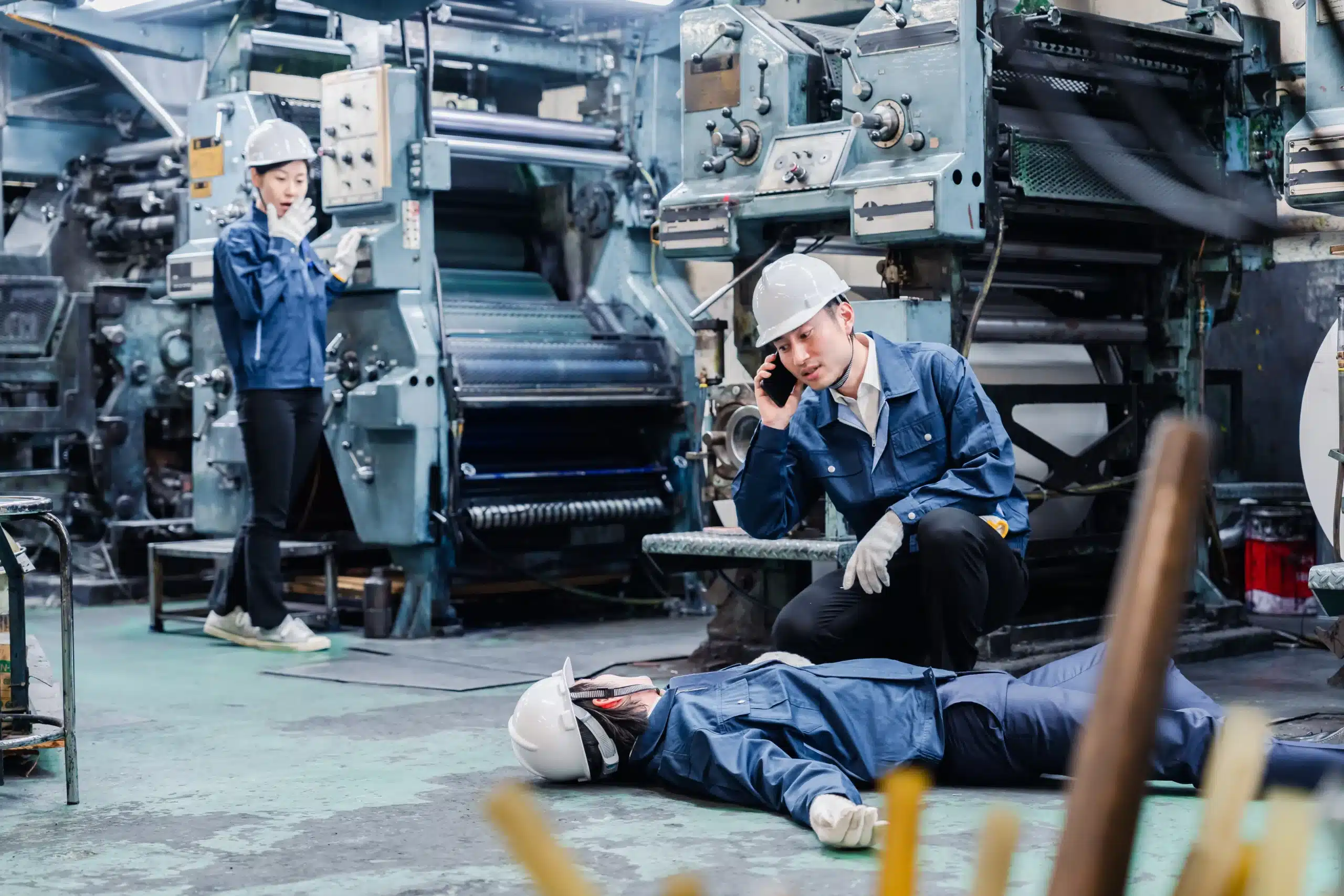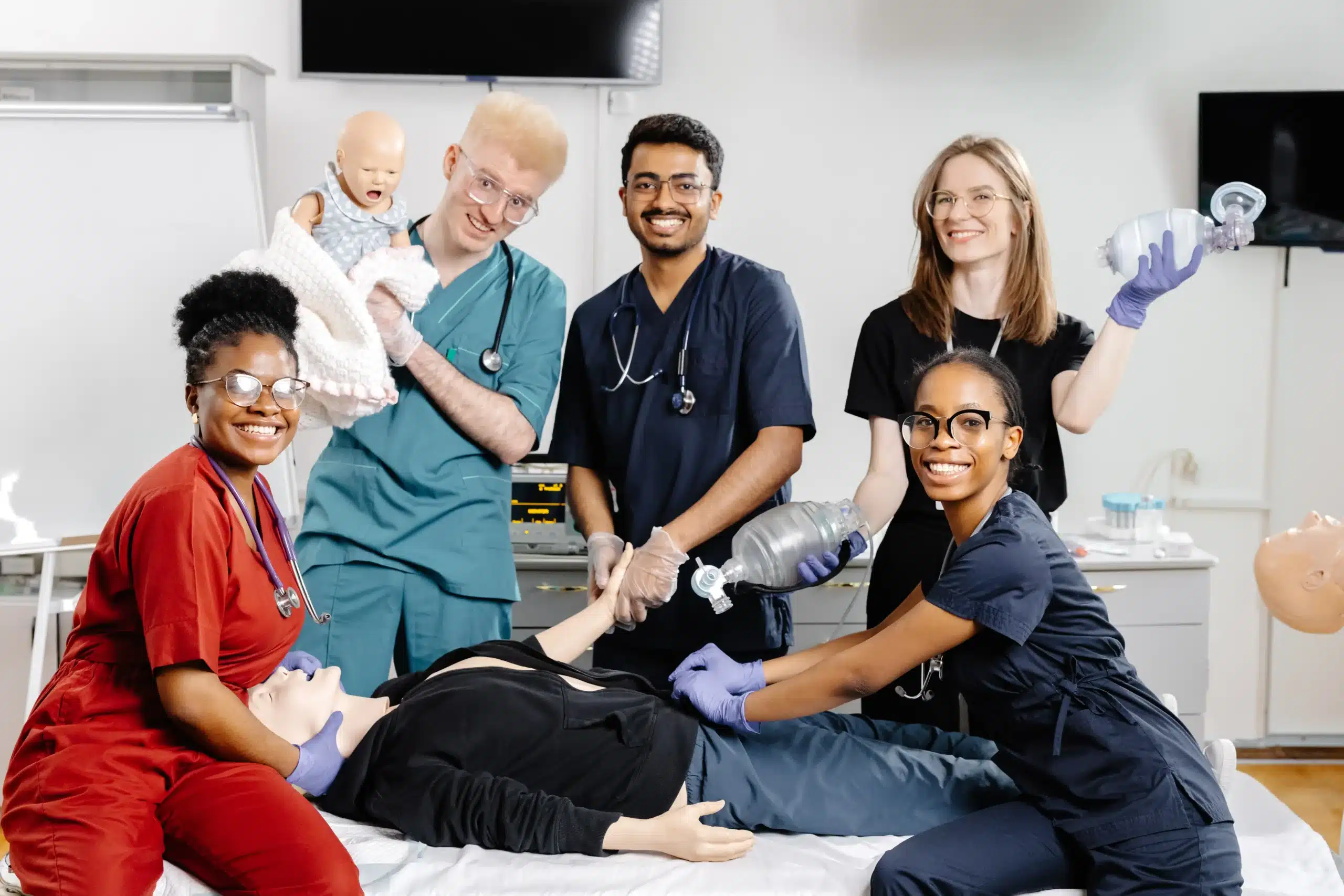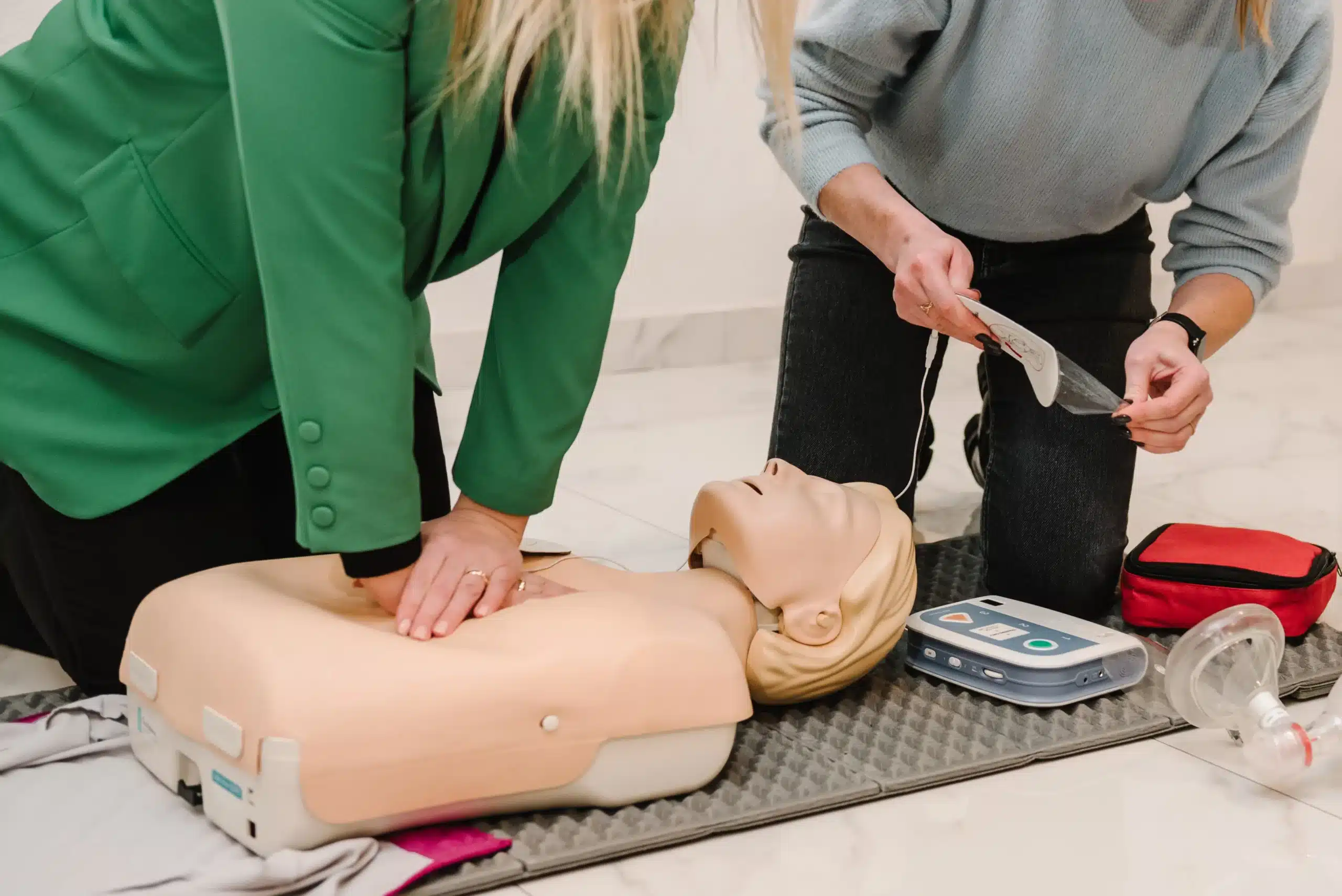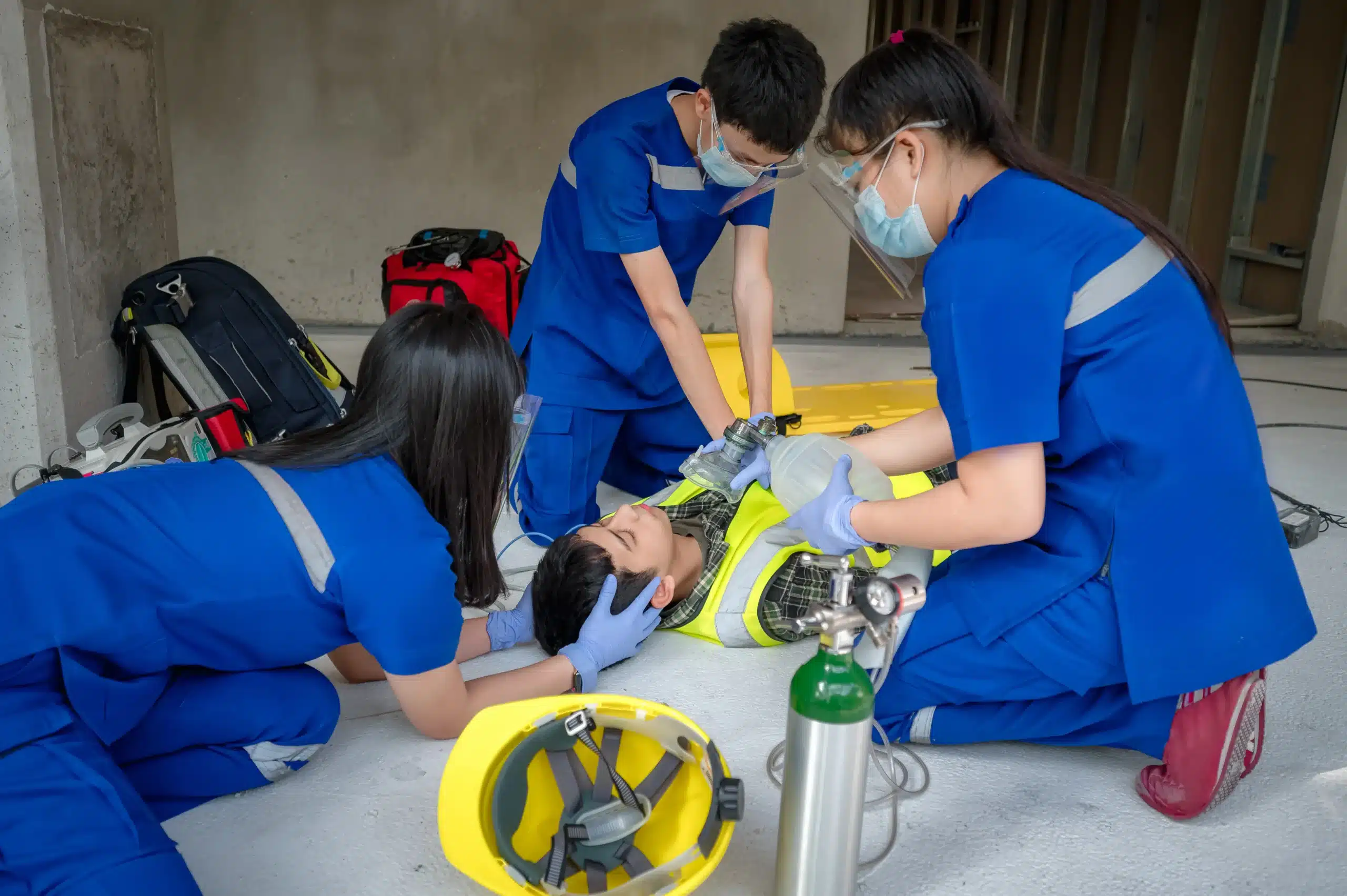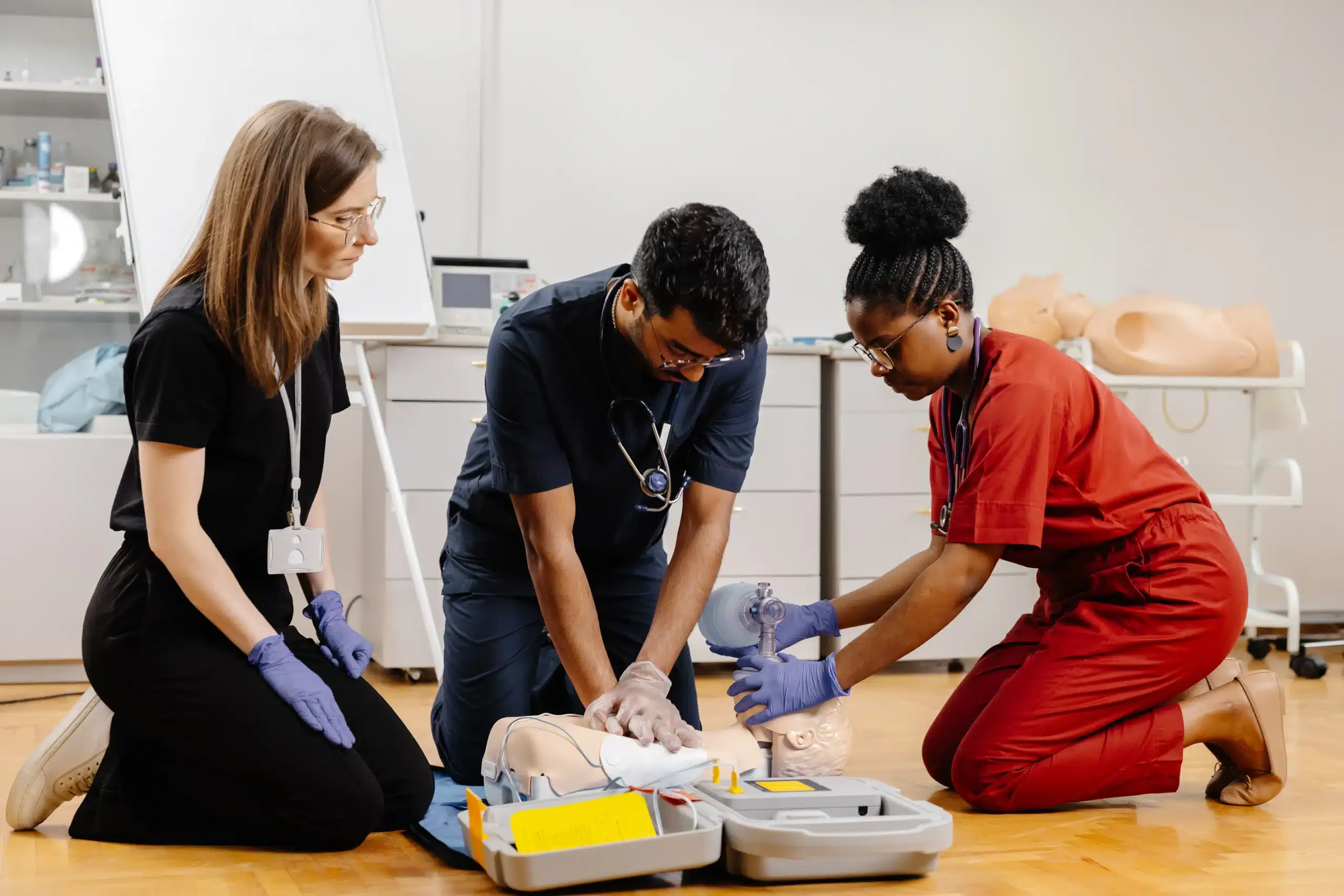Working with children in a healthcare setting is incredibly rewarding, but it also comes with a unique set of responsibilities. When a child’s health takes a critical turn, having the specialized skills to respond effectively can make all the difference. That’s where Pediatric Advanced Life Support (PALS) training comes in. If you’re a healthcare provider in Antioch, PALS certification equips you with the advanced knowledge and practical skills to confidently manage pediatric emergencies. This training goes beyond basic CPR, delving into the specific physiological needs of infants and children. It’s about being prepared, knowing the protocols, and having the confidence to act quickly and decisively when seconds count. This post explores the importance of pediatric advanced life support in Antioch and how it empowers healthcare professionals to provide the best possible care for young patients.
Key Takeaways
- PALS equips you with essential pediatric emergency skills: This specialized training covers a wide range of skills, from CPR and airway management to recognizing and treating various pediatric illnesses and injuries. It’s crucial for any healthcare provider working with children.
- Flexible PALS training options are available in Antioch: Choose from online, in-person, or blended learning formats to fit your schedule and preferred learning style. Safety Training Seminars and other providers offer convenient courses in the area.
- Preparation and continued learning are key to PALS success: Review the study materials, actively participate in your chosen course, and remember to renew your certification every two years to maintain your skills and knowledge.
What is Pediatric Advanced Life Support (PALS) in Antioch?
Pediatric Advanced Life Support (PALS) is an advanced form of pediatric care taught by the American Heart Association. It goes beyond basic life support for children, preparing healthcare providers for pediatric emergencies. This specialized training gives providers the skills to confidently manage respiratory and cardiac emergencies in infants and children. If you’re a healthcare professional working with young patients in Antioch, PALS certification is essential for providing the highest quality of care. Our PALS classes cover critical skills, from airway management and effective ventilation to recognizing and responding to life-threatening conditions.
What is PALS and why is it important?
PALS training is crucial for healthcare providers working with children. It equips them with the knowledge and skills to respond effectively to pediatric emergencies, which can range from respiratory distress and cardiac arrest to shock and post-resuscitation care. PALS certification demonstrates a commitment to providing excellent care for young patients, giving both parents and colleagues confidence in your abilities. The course emphasizes a systematic approach to assessment, treatment, and stabilization, ensuring that providers can act quickly and efficiently in critical situations. This specialized training can truly make a difference in the lives of children facing medical crises.
What skills does PALS training teach?
PALS focuses on the unique needs of infants and children, recognizing that their physiology and responses to emergencies differ significantly from adults. The training covers age-specific considerations, ensuring that healthcare providers understand the nuances of pediatric anatomy and physiology. Participants learn to perform effective CPR, administer medications, manage airways, and recognize and treat various pediatric illnesses and injuries. PALS also emphasizes teamwork and communication, preparing providers to work collaboratively in high-pressure emergency situations. This comprehensive training ensures graduates are well-prepared to handle a wide range of pediatric emergencies.
How does PALS benefit Antioch’s healthcare community?
PALS training directly benefits the Antioch community by enhancing the quality of pediatric emergency care. By equipping local healthcare providers with advanced life-saving skills, PALS strengthens the community’s ability to respond effectively to pediatric emergencies. This improved preparedness can significantly impact the outcomes for children facing critical health situations. The availability of PALS-certified professionals in Antioch ensures that children receive the specialized care they need, contributing to a safer and healthier community. It also fosters a culture of continuous learning and improvement within the healthcare system.
Find PALS Training in Antioch
Finding the right PALS training in Antioch is easier than you think. With various options available, you can find a course that fits your schedule and learning style.
Class Formats and Schedules
PALS training in Antioch offers flexible learning options. You can choose from online, in-person, or blended formats. Online courses provide the convenience of learning from anywhere, while in-person classes offer hands-on practice and direct interaction with instructors. Blended learning combines the benefits of both. Many providers offer weekend and evening classes to accommodate busy schedules. Check with specific training centers like Safety Training Seminars for their current schedule.
Course Curriculum and Prerequisites
The PALS course curriculum focuses on pediatric advanced life support techniques for patients up to 18 years old. It covers essential skills for managing pediatric emergencies, including recognizing and treating respiratory and cardiac arrest. The course also emphasizes effective team dynamics during resuscitation. While there aren’t specific prerequisites for PALS, a background in healthcare is recommended. A strong understanding of basic life support (BLS) is helpful, as PALS builds upon those foundational skills. Learn more about the PALS curriculum at Safety Training Seminars.
Training Providers in Antioch
Several reputable organizations offer PALS training in Antioch and the surrounding areas.
Safety Training Seminars
Safety Training Seminars is a woman-owned American Heart Association (AHA) Training Center in Brentwood, serving Antioch, Brentwood, and Concord. They offer various AHA courses, including BLS, ACLS, PALS, CPR, and First Aid. Their focus on quality instruction and convenient scheduling makes them a popular choice. For groups, they offer discount pricing.
American Heart Association
The American Heart Association offers PALS courses in various locations, often partnering with local training centers. Their courses adhere to the highest standards and provide comprehensive training. You can find AHA-certified PALS courses through their website or by contacting local training centers. They also have a helpful Northern CA CPR directory.
Bay Area CPR
Several CPR training centers in the Bay Area, including those near Antioch, offer PALS certification. It’s important to choose an AHA-certified training center to ensure the quality and recognition of your certification. You can often find these centers by searching online for “Bay Area CPR.”
Red Cross
While the Red Cross offers excellent training programs, they don’t currently offer PALS certification. Their focus is on other life-saving courses, such as CPR, First Aid, and BLS. For PALS certification, find an AHA-certified training center.
Local Hospitals and Medical Centers
Many local hospitals and medical centers in and around Antioch offer PALS training. Check with hospitals in your area, such as Sutter Delta Medical Center or John Muir Health, for information on their programs. These programs are often tailored to the specific needs of the hospital and may offer specialized training.
Register for PALS Certification
Getting your PALS certification is straightforward. Here’s what you need to know about pricing, registration, and keeping your certification current.
Course pricing and discounts
Our PALS certification course is priced at $290, covering the online portion, the hands-on skills session, and your PALS card. We’re committed to offering competitive pricing in Antioch and have a price-match guarantee. For even better value, check out our discount page for group registrations.
How to register
Ready to register? Visit our website to sign up for PALS training and view upcoming course schedules and locations. We offer various class times and dates to accommodate your schedule. The registration process is quick and easy.
Get certified
After completing both the online course and the in-person skills session, you’ll receive your official American Heart Association PALS card. This certification validates your ability to respond to pediatric emergencies, giving you the confidence to provide critical care. PALS certification is a valuable asset for any healthcare provider working with children.
Renew your certification
PALS certification is valid for two years. To maintain your skills and stay current with the latest guidelines, renew your certification before it expires. We offer renewal courses to make this process simple and convenient.
Prepare for PALS Training
Getting ready for your PALS training involves more than just signing up. A little prep work goes a long way toward making sure you get the most out of your course. Here’s how to approach it:
Study Materials and Resources
The American Heart Association provides comprehensive PALS study materials designed to familiarize you with the core concepts. Reviewing the PALS Provider Manual and taking practice tests can significantly improve your understanding of pediatric assessment, treatment algorithms, and resuscitation techniques. Many online resources, including videos and interactive modules, can supplement your learning. Check with your chosen training provider, Safety Training Seminars, for recommended resources.
Tips for Course Completion
PALS courses are intensive, combining lectures, demonstrations, and hands-on practice. To succeed, come prepared. Review the course materials beforehand, get a good night’s sleep before class, and arrive on time. Active participation is key—ask questions, engage in discussions, and take notes. Don’t be afraid to ask for clarification if anything is unclear. Your instructors are there to support you.
Practice and Simulations
PALS training emphasizes practical application. Simulations provide a safe environment to practice essential skills like airway management, intravenous access, and medication administration in realistic scenarios. Take advantage of every opportunity to practice. The more you rehearse, the more confident you’ll become in applying these skills under pressure.
Apply PALS Skills in Real-World Settings
While simulations are crucial, the true test of your PALS training comes when you apply these skills in real-world situations. Reflect on your training and consider how you would adapt the techniques to different pediatric emergencies. Regularly reviewing the material and staying updated on the latest guidelines will help you maintain your proficiency. Consider joining a professional organization to stay abreast of the latest advancements in pediatric care.
Overcome PALS Training Challenges
PALS training can be demanding. The sheer volume of information and the high-stakes nature of pediatric emergencies can feel overwhelming. Remember, it’s okay to struggle. Reach out to your instructors or colleagues for support. Form study groups to review material and practice together. Breaking down the content into manageable chunks and focusing on one concept at a time can make the learning process less daunting. And remember, the skills you gain through PALS training are invaluable for providing the best possible care for pediatric patients.
Related Articles
- Pediatric Advanced Life Support (PALS) in Concord – Brentwood CPR Classes
- PALS HeartCode Brentwood: A Certification Guide
- BLS ACLS PALS Training: Your Ultimate Guide – Brentwood CPR Classes
Frequently Asked Questions
What if I don’t work in Antioch, but nearby?
Even if you don’t work directly within Antioch city limits, our Brentwood location serves the surrounding areas, including Brentwood and Concord. If you’re close by, our PALS courses are still easily accessible and a great option for your certification needs. We encourage you to check our website for directions and see how close we are to you.
Is PALS certification required for my job?
While PALS certification isn’t universally required for all healthcare roles, many hospitals, clinics, and other healthcare settings require or strongly prefer it for professionals involved in pediatric care. It’s best to check with your employer or licensing board to determine the specific requirements for your profession and location. Even if it’s not mandatory, PALS certification demonstrates a commitment to advanced pediatric care, which can enhance your career prospects.
What’s the difference between PALS and BLS?
BLS (Basic Life Support) teaches fundamental life-saving skills, including CPR, for all age groups. PALS (Pediatric Advanced Life Support) builds upon BLS, focusing specifically on the advanced life support needs of infants and children. PALS delves deeper into pediatric physiology, assessment, and treatment algorithms for a wider range of emergencies. Think of BLS as the foundation, while PALS provides the specialized knowledge for more complex pediatric emergencies.
How long does PALS certification last, and how do I renew it?
PALS certification is valid for two years. To renew, you’ll need to take a PALS renewal course before your current certification expires. This ensures your skills and knowledge remain up-to-date with the latest guidelines. Contact Safety Training Seminars or the American Heart Association for information on renewal courses.
What if I have more questions?
We understand you might have more specific questions about PALS training. Feel free to reach out to Safety Training Seminars directly. We’re happy to answer any questions you have about course content, scheduling, pricing, or anything else related to PALS certification. You can find our contact information on our website.


